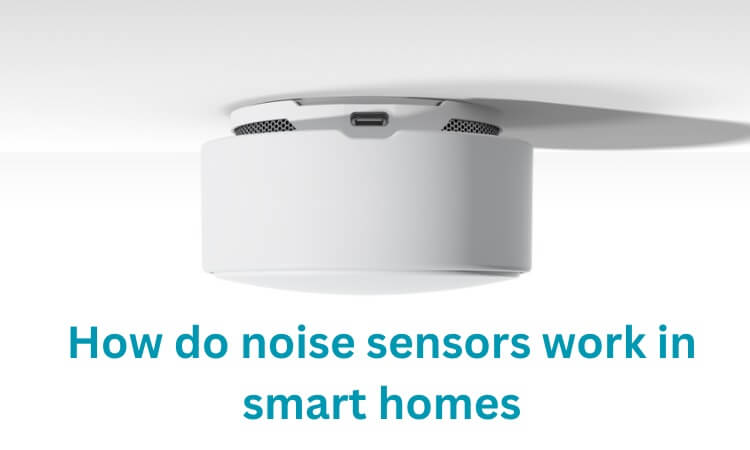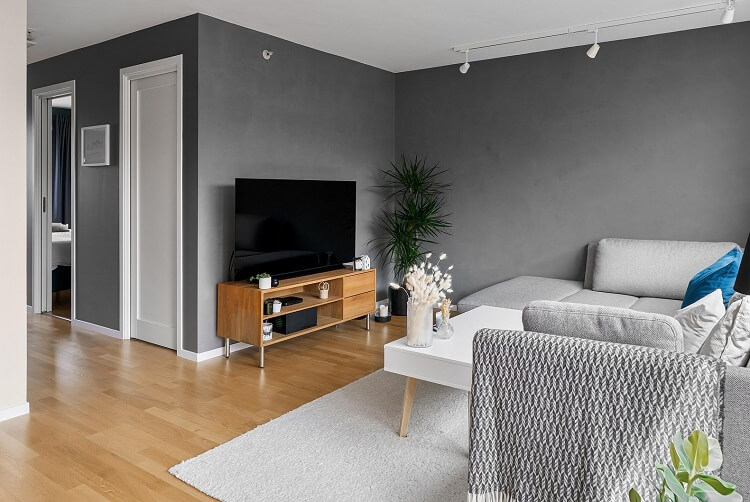
If you’ve ever wondered how do noise sensors work in smart homes, you’re in the right place. These small but powerful devices are becoming increasingly important in creating a truly intelligent and responsive home environment. They’re not just about reacting to loud noises; they open up a world of possibilities for enhancing security, automating tasks, and creating a more comfortable living space.
Let’s delve into the fascinating world of smart home noise sensors and discover how they can transform your home.
Smart homes are evolving rapidly, and noise sensors are key players in this transformation. They go beyond simply detecting sound; they analyze it, interpret it, and trigger actions that enhance our lives. These devices monitor sound levels, enabling automated responses to ensure comfort, security, and energy efficiency.
Whether you want to detect unusual noises for enhanced security, maintain a peaceful environment for relaxation, or integrate with other smart devices for seamless automation, noise sensors are a valuable addition to any smart home setup.
What Are Noise Sensors?
Noise sensors are devices engineered to measure sound levels and analyze noise patterns in real-time.
Unlike basic sound sensors that primarily detect specific audio cues, noise sensors provide broader insights into the ambient sound environment. This capability makes them ideal for a variety of smart home applications, including security systems, home automation, and environmental monitoring.
Key features of noise sensors include:
- Microphones: Highly sensitive microphones capture sound waves from the surrounding environment, acting as the “ears” of the system.
- Analog-to-Digital Converter (ADC) and Signal Processors: The captured sound waves, which are analog signals, are converted into digital data by an ADC. This digital data is then processed by a microprocessor, often using algorithms like Fast Fourier Transform (FFT) to analyze the frequency components and amplitude of the sound.
- Connectivity: Wi-Fi, Bluetooth, Zigbee, or Z-Wave allows seamless integration with your smart home ecosystem, enabling communication with other devices and your smartphone or tablet.
Sophisticated noise sensors can differentiate between various types of sounds, such as human voices, footsteps, glass breaking, or alarms, adding significant versatility to their applications.
This discrimination is often achieved through machine learning algorithms trained on vast datasets of sounds.
How Do Noise Sensors Work?
Noise sensors operate through a straightforward yet sophisticated process:
- Sound Capture: Built-in microphones detect and collect acoustic signals (sound waves) from the surrounding environment.
- Signal Conversion: The analog sound waves are converted into digital signals by an Analog-to-Digital Converter (ADC). This process involves sampling the analog signal at a specific rate and quantizing the amplitude of each sample to represent it as a digital value. This digital representation of the sound is crucial for subsequent analysis.
- Data Analysis: The digitized sound data is processed by a microprocessor within the noise sensor.
Algorithms, such as Fast Fourier Transform (FFT), are used to analyze the frequency components and amplitude of the sound, allowing the sensor to determine the overall sound level and identify patterns. More advanced sensors may use machine learning algorithms to classify the type of sound detected.
- Action Triggering: Based on pre-configured settings and thresholds, the sensor triggers pre-defined actions. For instance, if the sound level exceeds a certain threshold, the sensor might send an alert to your smartphone, activate an alarm, or trigger other connected smart home devices, such as turning on lights or recording video with a security camera.
This precise detection and response mechanism ensures that your smart home operates efficiently and effectively, adapting to changes in the sound environment.
Types of Noise Sensors in Smart Homes
Basic Noise Sensors
These sensors focus on measuring overall sound pressure levels (SPL), typically expressed in decibels (dB).
They are commonly used for monitoring ambient noise and triggering simple actions like adjusting smart lighting based on noise levels. An example would be a basic sound level meter integrated into a smart home hub.
Smart Noise Sensors
Equipped with advanced signal processing and often utilizing artificial intelligence (AI), these sensors can identify specific sound patterns like breaking glass, smoke alarms, or a baby crying. They are ideal for security and childcare applications.
Products like the “Advanced Noise Sensor X” (fictional example) use machine learning to distinguish between different sounds with high accuracy.
Integrated Noise Sensors
These sensors are built into multi-functional smart home devices like smart security cameras, smart speakers, or even smart thermostats. This integration offers added functionality without requiring separate, dedicated noise sensor hardware. For example, a smart security camera might use its integrated noise sensor to trigger recording when a loud noise is detected.
Applications of Noise Sensors in Smart Homes
Security
Noise sensors are valuable additions to smart home security systems.
They can detect the sound of breaking glass, forced entry, or other unusual noises, instantly sending alerts to homeowners and security services. For instance, a sensor detecting the distinct sound of shattering glass at night could trigger an alarm and activate security cameras.
Automation
By monitoring sound levels, noise sensors can trigger automated responses throughout your home. They can adjust smart lighting based on ambient noise, lower motorized blinds during loud periods, or even adjust the HVAC system to compensate for increased noise levels.
Imagine the blinds automatically closing when the noise level from traffic outside rises above a certain threshold.
Environmental Monitoring
Noise sensors help create a more peaceful and comfortable living environment by identifying and mitigating sources of noise pollution. They can provide data on noise levels within your home, allowing you to identify and address problematic noise sources. This is particularly useful for homes near busy streets or construction sites.
Child and Elderly Care
Noise sensors can be invaluable tools for monitoring the well-being of children and elderly family members.
They can detect a baby’s cries, alert caregivers to unusual sounds in an elderly person’s room, or even monitor for sounds indicating a fall. For example, a sensor could alert parents if a baby cries while they are in another part of the house.
Benefits of Noise Sensors in Smart Homes
- Enhanced Security: Real-time threat detection through sound recognition adds an extra layer of security to your home.
- Improved Automation: Automated responses to noise levels personalize and streamline your smart home experience.
- Increased Comfort: Noise monitoring and mitigation help maintain a tranquil and peaceful living environment.
- Greater Versatility: Seamless integration with various smart devices creates a cohesive and responsive smart home ecosystem.
FAQ
How do noise sensors differ from sound sensors?
While both detect sound, noise sensors measure overall sound levels (SPL) for environmental monitoring and triggering actions based on thresholds. Sound sensors are more focused on detecting specific audio frequencies or patterns, like voice commands or specific alarm tones.
Can noise sensors identify specific sounds?
Yes, advanced smart noise sensors equipped with AI and machine learning can distinguish between various sound types, such as glass breaking, smoke alarms, or baby cries.
The accuracy and range of identifiable sounds depend on the specific sensor and its algorithms.
Are noise sensors compatible with other smart devices?
Most smart home noise sensors are designed for integration with popular smart home ecosystems like Amazon Alexa, Google Home, and Apple HomeKit, enabling them to interact with other connected devices like smart lights, cameras, and thermostats.
What are the privacy concerns related to noise monitoring?
Just like any smart home device, noise sensors raise privacy considerations. It’s crucial to choose reputable brands with clear privacy policies. Look for features like local processing (where the sound analysis is done on the device itself, not in the cloud) and data encryption.
What’s the average cost of a smart home noise sensor?
The cost varies widely depending on features, brand, and integration capabilities.
Basic noise sensors can start around $20, while more sophisticated AI-powered sensors can cost upwards of $100.
Conclusion
Noise sensors are transformative additions to the modern smart home, enhancing security, automating tasks, and improving overall comfort. From detecting potential security threats to creating a more serene living space, noise sensors offer a wealth of benefits. Explore the wide range of noise sensors available and discover how these intelligent devices can elevate your smart home experience.
Research different brands, compare features, and choose the sensor that best meets your needs and budget. Take the next step towards a smarter, more responsive, and more comfortable home.






